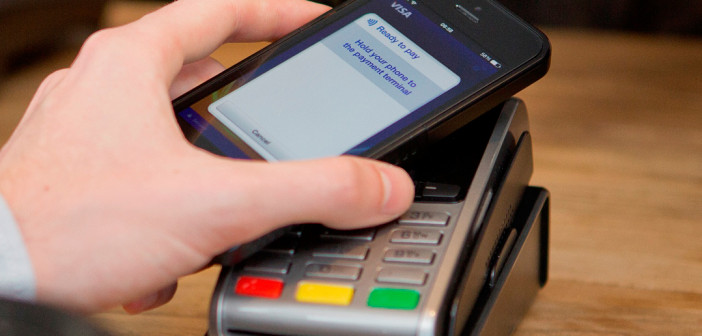By Howard Berg, senior vice president of UK and Ireland at Gemalto
With the launch of Apple Pay in the UK, there’s been a huge amount of speculation around what the future really holds for the world of consumer payments and how the issue of security will impact it. Questions include: How safe is it? What are the restrictions? Does my bank support it?
Contrary to popular belief that the launch of Apple Pay would overshadow other market players, such as Samsung Pay or Android Pay, in reality the move has been welcomed by competitors. All of the major players look set to benefit as a result of mobile payments being brought into the mainstream, creating a heightened awareness of near field communication (NFC) technology almost overnight.
Embracing m-payment
Yet in order for consumers to embrace these services, there needs to be an element of trust. Something all providers must realise if they are to succeed in driving adoption. Consumers have extremely high expectations and expect service providers to have solutions in place that don’t compromise their privacy and security. Should this ever be compromised trust will be lost and will be very hard to win back.
Trust and reach will be key components in the widespread adoption of mobile payment technology. Consumers need assurances that the technology is not only convenient and accessible from their chosen device but also that their credit card information or banking details stored on the mobile are protected.
That is why mobile payment technologies have a number of built in security features, such as PIN protection and remote mobile wallet deactivation and service providers have the possibility to choose among different security frameworks when deploying their services. All of these have been designed to increase consumer confidence without sacrificing convenience.
Evolving the security chain
Apple and Samsung have demonstrated they understand the importance of this by deciding to store the payment credentials (tokens) in tamper-proof devices, the Samsung eSE for instance. This is a very important element of the security chain, but of course not the only one and the chain is evolving all the time.
Payment innovation is not linear and there will always be new technologies and use cases developing simultaneously. This creates an exciting but also challenging environment for businesses looking to create a simple, cost effective, and secure solution able to reach the majority of their customer base.
Meanwhile, banks are posing as many questions as they are answering. Will they propose their own wallet or will they go all out with Apple Pay, Samsung Pay, or Android Pay? Most banks will probably get on board with one or all of the solutions, but there’ll also be those who want to build their own wallet. In both cases we are facing disintermediation challenges, however, these can be overcome if banks were to offer multiple, premium banking services via online and mobile channels that would enable e-banking and m-banking, all through one wallet.
Making it simple for consumers
Consumers will want to make payments and transactions quickly and easily with the flexibility to use their preferred payment method, whether that is a credit or debit card, smartphone or another payment device such as wristbands or stickers. The collaboration between banks, mobile operators and retailers to allow for the issue of payment credentials quickly across multiple devices, online and in proximity, is of the utmost importance, but it is possible and solutions are already available to facilitate the collaboration among the different market players.
Security is the underpinning element that allows for all of this and achieving an effective balance between security and convenience is what will help to win consumers over. If consumers have one bad experience this could set the whole process back.
Apple has already created a very favourable user experience with Passbook, a wallet storing multiple applications such as boarding tickets and gift cards, before adding contactless payment to this aggregation of services. No doubt Samsung will also provide compelling value added services in addition to mobile payments, adding the convenience and recognition to complement security.
The big players have invested significantly in the security of their NFC solutions and this ultimately will ensure the success of the technology. The rest of the industry must follow this lead before mainstream adoption becomes a reality. The likes of Apple and Samsung may lay the foundations, but providers must remain conscientious and forward thinking in the ever-evolving road that lies ahead.
Gemalto is a world leader in digital security, with 2014 annual revenues of Euro 2.5 billion and bluechip customers in over 180 countries.





